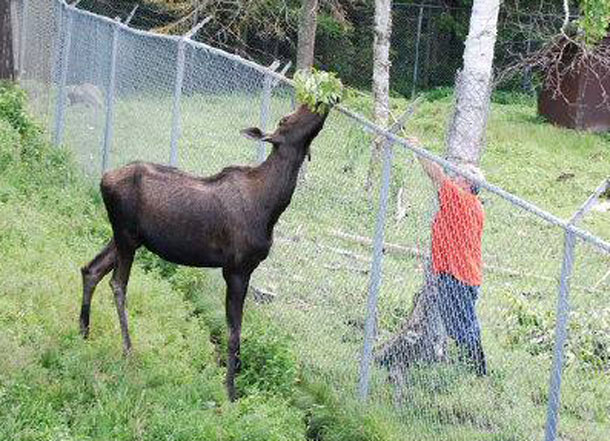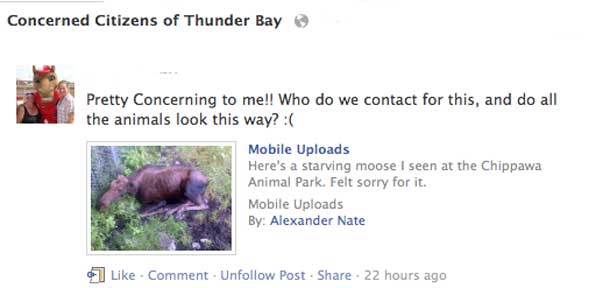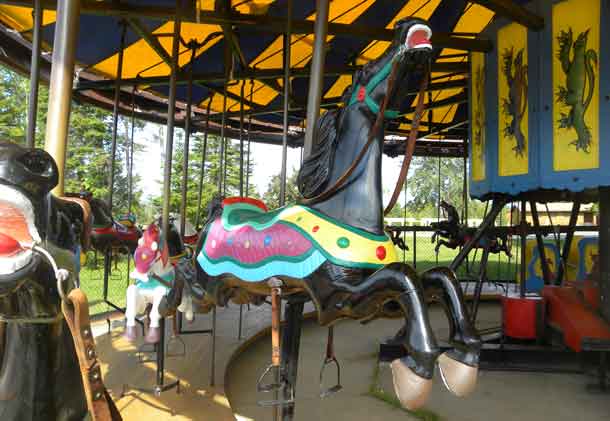
Moose at the Zoo – Difficult To Keep
THUNDER BAY – First residents were assured that the moose at Chippewa Park was healthy. Now a post-mortem examination on the moose that died at the Chippewa Animal Exhibit found that liver failure was the cause of death. The post-mortem examination – which was conducted by Thunder Bay veterinarian Dr. Dan Matyasovszky of Slate River Veterinary Services – also found the seven-year-old moose was adequately cared for throughout its life at Chippewa.
“Moose are notoriously hard to care for in captivity,” Dr. Matyasovszky said. “They are susceptible to disease, and have specific dietary requirements that simply can’t be reproduced in the required amounts in a wildlife exhibit or zoo setting. Ninety per cent of moose die before the age of six when in captivity; 70 per cent die within their first year.”
Moose cannot survive on a diet of grass and grain, unlike the elk, caribou and deer which are cared for at Chippewa.
When the story first broke on the Chippewa Park moose, the word was, “The moose at Chippewa Park Wildlife Exhibit is fed a diet which includes five gallons of dairy rations per day, plus two gallons of moose maintenence – a blend of grains, apples and carrots – an ample supply of hay and is hand fed poplar leaves and branches (a moose favourite!). He has unlimited access to clean water as well”.

“He eats all his food every day and behaves like a healthy moose. To alley any concerns in the community, arrangements are being made to have a large animal vet come and cofirm that the moose is well”. Chippewa Park officials commented, “Our moose is now five-years-old and came to Chippewa as an orphaned newborn through the MNR. He was bottle-fed and has developed a strong bond with the animal feeder (above) at the Park over the years”.
The moose died on Aug. 27. It had spent nearly its entire life at Chippewa – the moose, along with a sibling, was brought there when it was just a few weeks old after its mother was struck and killed by a vehicle. The second moose died shortly after its arrival at Chippewa.
Dr. Matyasovszky said the moose showed signs of poor body condition and loose manure, both of which are “very common” among the captive moose population, and are linked to the difficult nutritional requirements.
“We were very sad to see this animal pass away,” said Paul Fayrick – Manager, Parks Division. “It had been a staple of the Chippewa facility for many years, and our staff there cared about it a great deal.”
Fayrick said that, due to the difficulties associated with raising a captive moose, it is “unlikely” the Chippewa zoo will bring in another moose in the future.
Local veterinarians have begun a more rigorous inspection program at the Chippewa zoo, and will inspect animals there on a monthly basis. Previously, veterinarians were called in on an as-needed basis.












